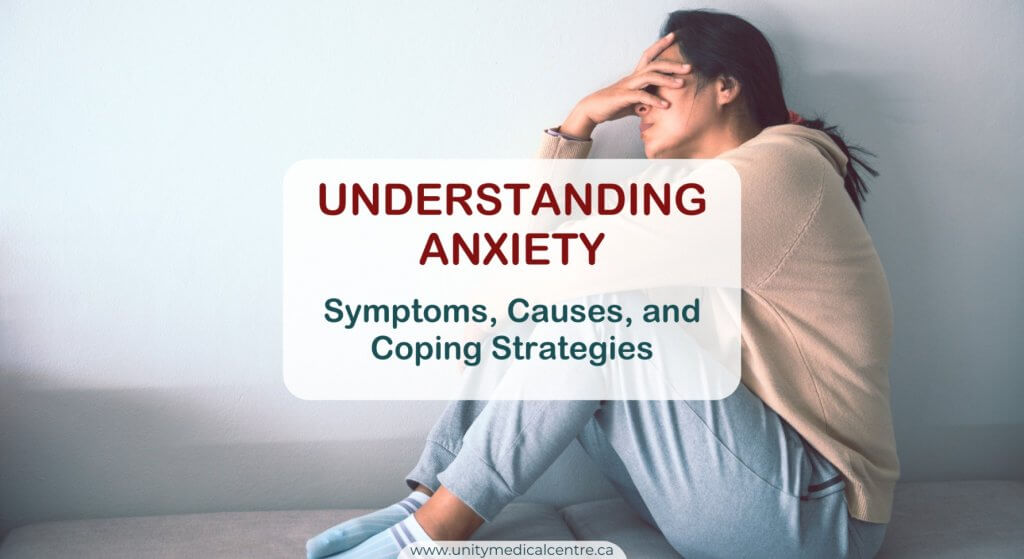
Understanding Anxiety
Symptoms, Causes, and Coping Strategies
Anxiety is a common human experience, and at some point in our lives, we all encounter it. Whether it’s the flutter of nervousness before a big presentation or the gnawing worry about an upcoming event, anxiety is a normal reaction. However, when anxiety becomes overwhelming and interferes with daily life, it’s essential to understand it better and learn effective coping strategies.
Symptoms of Anxiety:
Anxiety manifests in various ways, affecting both our thoughts and physical sensations. Some common symptoms include:
- Feeling Tense: Muscles tighten, and you may experience physical discomfort.
- Headaches: Anxiety can trigger tension headaches.
- Blushing: Blood rushes to the face, causing redness.
- Shaking: Trembling hands or legs due to heightened stress.
- Butterflies: That fluttery feeling in your stomach.
- Dry Mouth: Anxiety can lead to decreased saliva production.
- Fast Breathing: Shallow, rapid breaths.
- Dizziness: Feeling lightheaded or unsteady.
- Alertness: Heightened awareness, sometimes to the point of hypervigilance.
- Feeling Hot: Increased body temperature.
Causes of Anxiety:
Understanding the causes of anxiety helps us address it effectively. Some contributing factors include:
- Brain Dysregulation: Anxiety may result from dysfunctions in the limbic system, which processes emotions. The amygdala, prefrontal cortex, and hippocampus play crucial roles. When these structures malfunction, they can trigger an overactive fear response.
- Genetics: A family history of anxiety disorders increases the likelihood of experiencing anxiety.
- Stressful Life Events: Trauma, loss, or major life changes can lead to anxiety.
- Personality Traits: Certain personality traits, such as perfectionism or excessive worry, contribute.
- Neurotransmitter Imbalance: Chemical messengers like serotonin and dopamine impact mood and anxiety levels.
Coping Strategies:
To manage anxiety effectively, consider the following techniques:
- Mindfulness Meditation: Practice staying present in the moment. Mindfulness reduces anxiety by grounding you in the now and reducing rumination.
- Deep Breathing Techniques: Calm your nervous system by practicing slow, deep breaths. Focus on your breath to reduce anxiety.
- Cognitive-Behavioral Therapy (CBT): This evidence-based approach helps restructure negative thought patterns. By challenging irrational beliefs, you can reduce anxiety
- Physical Exercise: Regular exercise releases endorphins, which improve mood and reduce stress.
- Healthy Lifestyle Choices: Maintain a balanced diet, get adequate sleep, and follow a routine. These lifestyle factors impact anxiety levels.
- Mental Health Counseling: Talking to a professional therapist provides valuable insights and coping strategies.
- Combining Techniques: Often, a combination of strategies works best. Experiment to find what suits you.
Remember that seeking professional help is essential if anxiety significantly impacts your life. You don’t have to face it alone; reach out to a mental health professional or a trusted person to discuss your feelings and experiences.
In conclusion, understanding anxiety empowers us to navigate its challenges effectively. By recognizing symptoms, exploring causes, and implementing science-backed coping strategies, we can reclaim control over our mental well-being.
Related posts:
- Small Shifts, Big Impact: How Lifestyle Choices Shape Your Chronic Disease Risk
- Lingering Cough: Understanding, Treatment, and Prevention
- Measles Outbreak: Are You and Your Family Protected?
- Chronic Pain Management: The Role of Holistic Medicine in Chronic Pain Relief
- Understanding Different Types of Chronic Pain
